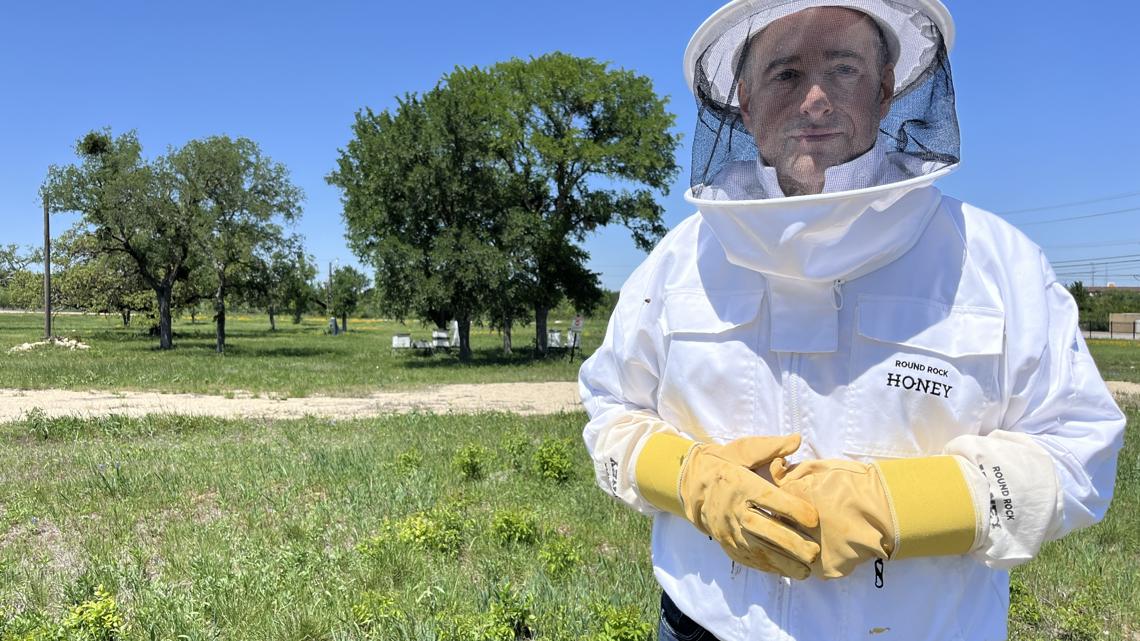
Beekeepers are worried as some have seen 80% of their hives die.
ROUND ROCK, Texas — Commercial beekeepers are abuzz, saying more of their bees are dying this year. Honeybee populations are plummeting across Texas and the U.S., with some beekeepers reporting large losses in their hives.
If the trend continues, it could have far-reaching consequences for agriculture and food prices.
Konrad Bouffard, owner of Round Rock Honey, said he’s seen an unusual number of bees dying or abandoning their hives this spring, compared to last season.
While it’s normal to lose 30% to 40% of bees annually, Bouffard said some of his hives have experienced losses as high as 80%.
“Just yesterday, we opened up a hive, and the bees were in formation inside, dead in place,” Bouffard said. “This is definitely an unwelcome surprise.”
Out of his 5,000 hives, Bouffard said it’s only happened to a few rows, so he’s not alarmed by the losses yet. However, he doesn’t know what’s causing the loss and suspects a combination of factors.
“It could be nutrition, it could be parasites, it could be the climate around us,” he said. “There’s a lot of pesticides. There are all sorts of things that could be.”
Bouffard said he believes subtle changes to seasonal transition caused by climate change could be at fault.
“Bees react to unusual variations in temperature and humidity by doing strange things, which can include sacrificing themselves for the perceived good of the hive,” he said.
But finding an answer for the losses is proving difficult. Bouffard said recent cuts to the USDA have significantly slowed pesticide screening and have delayed test results.
“We certainly have a developing crisis, but we don’t have the ability to respond to it quickly, and that’s directly linked to government cutbacks,” he said.
Bee losses hit historic highs
Bouffard’s experience mirrors a troubling national trend.
A study by the Apiary Inspectors of America found that U.S. beekeepers lost 55% of managed honeybee colonies between spring 2023 and 2024 – the highest loss rate since 2010. In Texas, the numbers are even higher, with beekeepers reporting a 59% loss.
The decline in honeybee populations is more than just a concern for beekeepers. Bouffard said bees play a vital role in pollinating a majority of the food and crops people eat.
“If we lose bees, there’s a domino effect in agriculture,” Bouffard said. “Prices could go way up. Combined with inflation, it’s not a good situation.”
Hope for recovery
Despite the challenges, Bouffard remains cautiously optimistic about the upcoming honey-harvesting season.
“We’re probably going to see a lot of babies this spring – at least I hope we do,” he said.
For now, beekeepers like Bouffard can only hope their remaining colonies survive, and that this year’s harvest will still be sweet despite the sting of rising losses.
